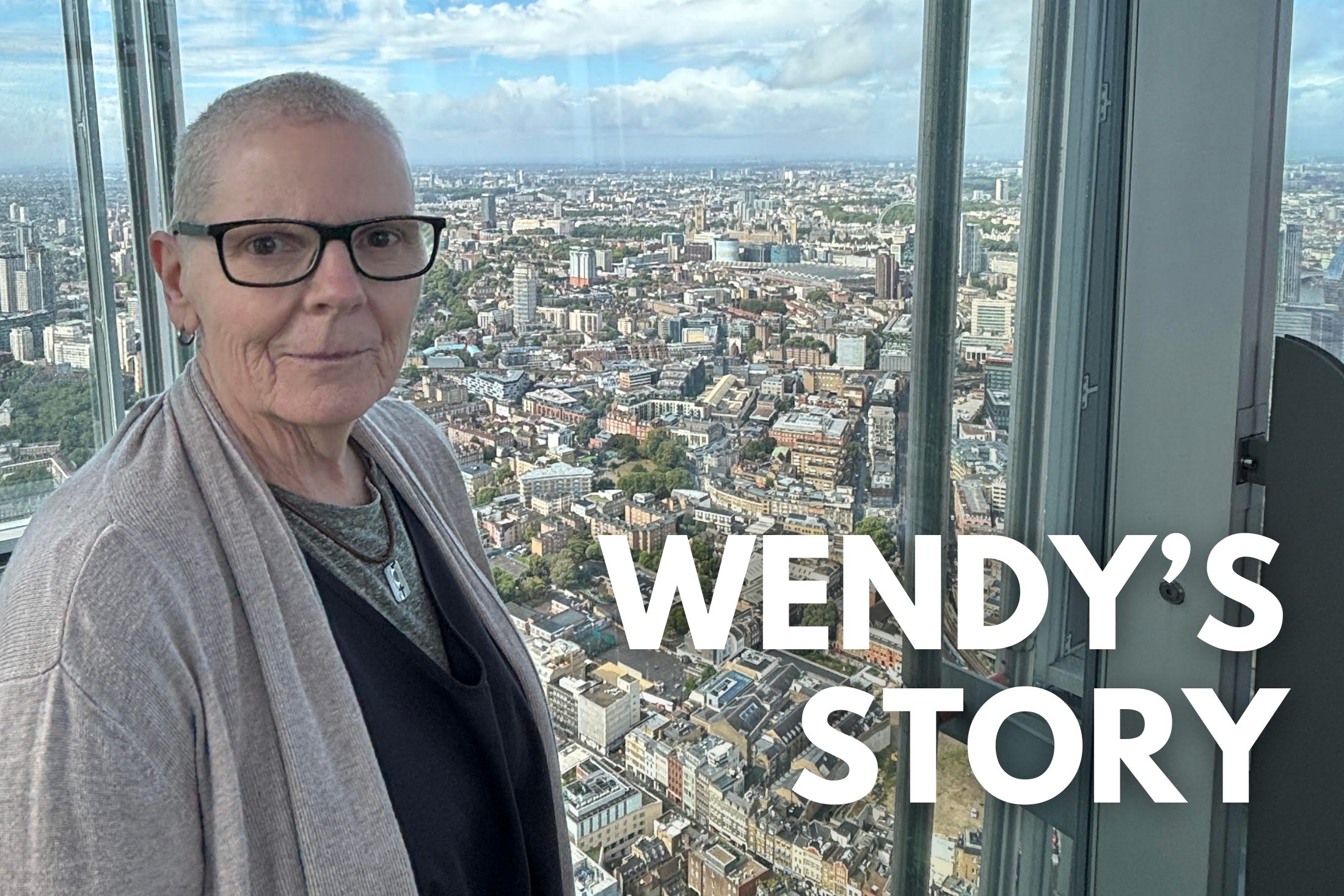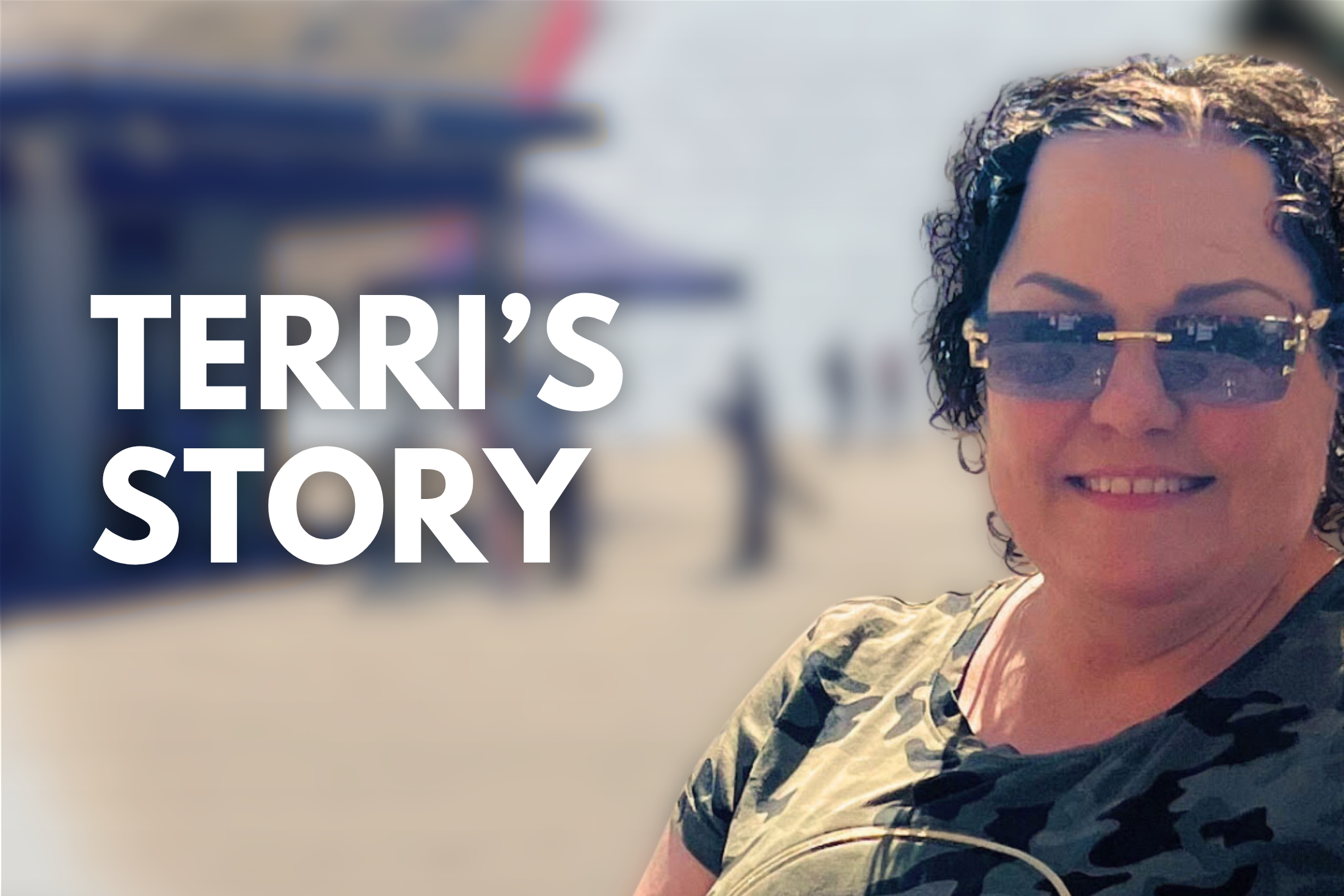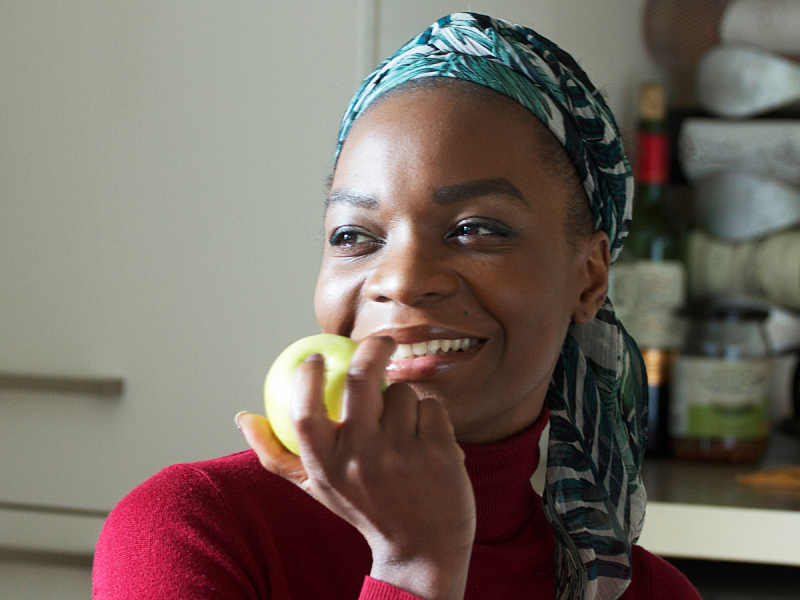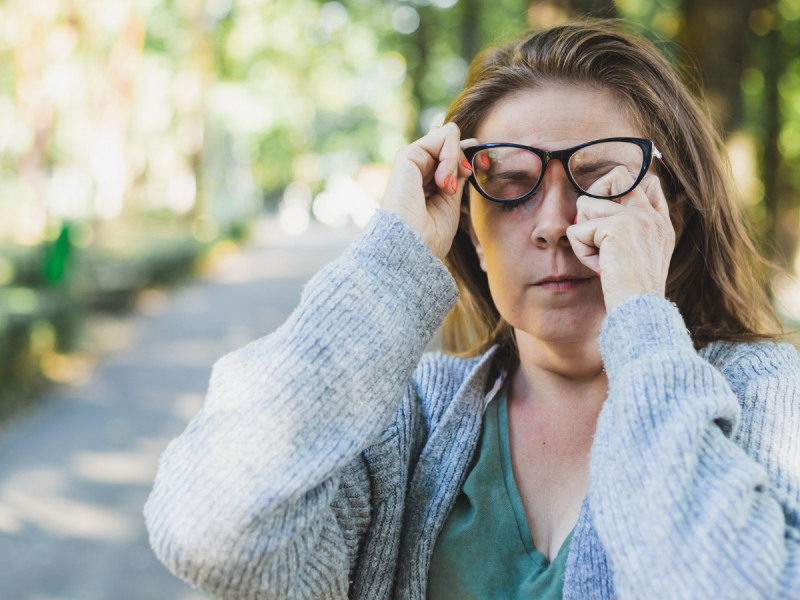
CompassionConnects
Using technology to connect
Featuring a resource directory and content from both women who have lived experiences with cancer treatment and health professionals, CompassionConnects allows past guests to stay connected to our community and access a multitude of resources from the comfort of their own home. Topics addressed include: mental health and wellness, nutrition and exercise, managing treatment side effects, family and peer support, and more!
CompassionConnects helps to:
Resource Directory
Check out this comprehensive list of cancer-specific resources for Albertans and rural Canadians. Both online and in-person resources are featured with everything from mental health support to online exercise videos to nutritious recipes!
If you see a correction or addition that needs to be made to this Resource Directory, please let us know.
National
Organizations
The Canadian Breast Cancer Network (CBCN)
The Canadian Breast Cancer Network (CBCN) is Canada’s leading patient-directed organization of individuals concerned about breast cancer. They support and promote the concerns of breast cancer patients through education, advocacy activities, and the information sharing. Their website provides a variety of great reading materials including publications and blogs.
The Canadian Cancer Society
The Canadian Cancer Society is a national, community-based organization of staff and volunteers whose mission is the eradication of cancer and the enhancement of the quality of life of people living with cancer. Their website is a great resource to access for trusted information regarding cancer support services, treatments, and education.
The Canadian Partnership Against Cancer
The Canadian Partnership Against Cancer is an independent organization funded by the federal government to accelerate action on cancer control for all Canadians. Check out their website for informative Cancer Guidelines and other tools to help you navigate your cancer journey.
Ovarian Cancer Canada
Ovarian Cancer Canada champions the health and wellbeing of women with ovarian cancer and others at risk of this disease while advancing research to save lives. The organization provides leadership in research, advocacy, and support, so that women live fuller, better, longer lives.
Rethink Breast Cancer
Rethink Breast Cancer is a young women’s breast cancer movement based in Toronto that educates, empowers and advocates for people worldwide through boldfaced campaigns, content, programs, and resources.
Provincial
Organizations
Alberta Cancer Foundation
Alberta Cancer Foundation provides information, education, and support to Albertan’s facing cancer. They have a Patient Navigator program which provides assistance to rural Albertans navigating the healthcare system as well as a variety of other Alberta-specific cancer information!
Alberta Clinical Trials
Alberta Clinical Trials aims to build an efficient, robust, and sustainable clinical trial system to allow more patients than ever the opportunity to participate in clinical trials. The “Patient” section of their website provides easy-read information regarding available clinical trials for patients interested.
Breast Cancer Supportive Care (BCSC)
Breast Cancer Supportive Care (BCSC) is a multidisciplinary clinic committed to providing medical care and support to breast cancer patients, those at high risk for breast cancer, and their families. They offer virtual and in-person consultations to help breast cancer patients navigate their cancer journey.
Control Cancer Alberta
Control Cancer Alberta provides detailed educational resources for patients. They have a multitude of guidelines to help patients who are newly diagnosed, who are currently undergoing treatment, and who have finished treatment, navigate the cancer journey.
Cancer Clinics in Central & Northern Alberta
Barrhead Community Cancer Centre
The Barrhead Community Cancer Centre is located within the Barrhead Healthcare Centre.
Bonnyville Community Cancer Centre
The Bonnyville Community Cancer Centre is located within the Bonnyville Health Centre.
Central Alberta Cancer Centre
The Central Alberta Cancer Centre is located within Red Deer Hospital.
Cross Cancer Institute
Located in Edmonton, the Cross Cancer Institute is Northern Alberta’s only comprehensive cancer centre and a leader in innovative cancer treatment.
Fort McMurray Community Cancer Centre
The Fort McMurray Community Cancer Centre is located within the Northern Lights Regional Health Centre.
Grande Prairie Cancer Centre
The Grande Prairie Cancer Centre is located within the Queen Elizabeth II Hospital.
High River Community Cancer Centre
The High River Community Cancer Centre is located within the High River General Hospital.
Hinton Community Cancer Centre
The Hinton Community Cancer Centre is located within the Hinton General Hospital.
Lloydminster Community Cancer Centre
The Lloydminster Community Cancer Centre is located within the Lloydminster Hospital.
Peace River Community Cancer Centre
The Peace River Community Cancer Centre is located within the Peace River Community Health Centre.
Primary Care Network McLeod River
The Primary Care Network McLeod River serves Edson, Whitecourt, Fox Creek Mayerthorpe, and surrounding areas.
Seton-Jasper Healthcare Centre
The Seton-Jasper Healthcare Centre offers physical therapy services for people with cancer.
Mental Health
Cancer Care Ontario: Anxiety Patient Guide
Download the free Cancer Care Ontario: Anxiety Patient Guide intended for people who have anxiety before, during or after cancer treatment. It can be used by patients, family, friends or caregivers.
Cancer Research UK: Coping with Cancer
Navigate this webpage to find a multitude of resources for managing a cancer diagnosis. There is everything from breathing and relaxation techniques, to tips for family members, to emotional coping strategies.
Insight Psychological
Insight Psychological offers cancer-specific counselling at various locations in Alberta in addition to online counselling!
UCLA Mindful Awareness Research Center: Free Guided Mediation
Check out a series of FREE guided meditations for an introduction to mindfulness and deep breathing. For a more in-depth class experience, they also offer online 6-week classes.
Wellspring Alberta
Wellspring Alberta offers a variety of mental health programs, including meditation programs and support groups online.
Nutrition
Alberta Health Services
The Alberta Health Services: Nutrition Guide includes healthy eating tips, information on how to access nutrition counseling, and even some tasty recipes.
Canadian Cancer Society
Find recipes for soups, pastas, smoothies, baked goods, roasts, and more!
Cancer Control Alberta: Nutrition Education Resources
These Nutrition Education Resources provide consistent, evidence-based resources for key nutrition topics. Topics addressed include how to add protein to your diet, nutrition supplementation, eating when you have taste and smell changes, and more.
College of Dieticians of Alberta
The College of Dieticians of Alberta outlines steps and contacts to find a certified cancer-specific dietitian in Alberta in addition to providing other public nutrition resources.
Power of Nutrition
Power of Nutrition is a class located at the Central Alberta Cancer Centre and the Cross Cancer Institute for patients and families to learn about staying at a healthy body weight during cancer treatments and how foods can help manage the side effects of cancer treatments.
Stanford Health Care: Nutritious Recipes for Cancer Patients
Oncology-certified registered dietitians at the Stanford Cancer Center provide recipes and nutrition tips for cancer treatment, recovery, and prevention. Diet plans outlining what to eat during chemotherapy and radiation are even provided.
Wellspring Food and Nutrition Program
Wellspring’s Food and Nutrition program taught by a registered dietitian, offers a wide range of information and advice about food and eating, with an emphasis on providing essential tools to optimize health and promote longevity.
Exercise
Alberta Cancer Exercise (ACE)
Alberta Cancer Exercise (ACE) is a free 12-week community-based exercise program designed specifically for individuals undergoing or recovering from cancer treatment.
BC Cancer
BC Cancer offers educational resources on exercise before, during, and after cancer treatment, as well as recommendations on how much exercise is safe to do, what types of exercise you should focus on, and more.
Wellspring Virtual Cancer-Specific Exercise Programs
Check out these online exercise classes. The focus of the program is to improve flexibility, strength and cardiovascular endurance. Exercise can reduce treatment related affects of nausea, fatigue and physical discomfort.
Cancer Control Alberta: 3-Minute Movement Videos
A team at the Health & Wellness Lab at the University of Calgary made these exercise videos focusing on cardio, yoga, and upper/lower body strength training. All you need is a chair!
Leading Edge Physiotherapy – Cancer Rehabilitation Clinic
The Leading Edge Physiotherapy Cancer Rehabilitation Clinic offers a range of services including lymphedema management, exercise programs, peripheral neuropathy treatment, vestibular therapy, scar tissue management, and general pain management. These services are available both in-person in Edmonton and virtually.
University of Calgary Health and Wellness Lab
The Health and Wellness Lab conducts research and develops movement-based programs, including exercise and yoga, to help those with cancer move from surviving to thriving. Check out a rich assortment of resources, including exercise manuals, infographics, and videos to get moving today!
Thrive Health
Check out these evidence-based exercise resources for cancer survivors from Thrive Health. They have a FREE comprehensive Thriver Manual to make movement and wellness a part of your cancer journey, as well as infographics, tip-sheets, and more!
The Mesothelioma Center
This article on Exercise for Cancer Patients offers insight into the benefits of exercising after a cancer diagnosis and why it’s important to create a plan to ensure it’s done safely.
Resources for Families
National Cancer Institute
National Cancer Institute – Support for Caregivers of Cancer Patients is an educational webpage providing tips for caregivers to help manage the demands of caregiving and prevent burnout.
BC Cancer
BC Cancer – Family Support has information, handouts, workbooks, and weblinks for supporting children, teens, and caregivers with cancer in the family.
American Cancer Society Caregiver Resource Guide
The American Cancer Society Caregiver Resource Guide is a tool for people who are caring for someone with cancer. It provides information both on how to support your loved ones and yourself during the cancer journey.
Wellspring Caregivers Connect
Wellspring Caregiver Talks support webinars offer perspective on the challenges of cancer caregiving in recent times and the ways that caregivers can take care of themselves and their self-identity while caring for a loved one.
Caregivers Connect: Support and Relaxation is a group program that provides a community for caregivers of cancer patients to meet with one another.
In the Mindfulness Caregiver Support Group, learn how to focus on awareness of breath, while acknowledging emotions, thoughts, and bodily sensations, in an effort to lower stress response, and ground in the present moment.
Support Groups
Sisters in Cancer Support Group
This support group is located in Fort McMurray. Contact sistersincancerymm@gmail.com for more information.
Grande Prairie and Area Breast Cancer Support Group
Check out their Facebook page for more information.
Whitecourt Cancer & Wellness Society
The Whitecourt Cancer & Wellness Society supports healthcare workers and residence that are living with, recovered from, or assisting someone with cancer in Whitecourt. You can reach them at:
Box 951, Whitecourt, AB, T7S 1N9
wctcancerwellness@gmail.com
780-778-5540 ext. 227
Facebook
Cancer Support Group Red Deer
Check out their Facebook page for more information.
National Cervical Cancer Coalition Support Group & Forum - Inspire
Connect with others affected by cervical cancer and HPV diseases for information about detection, prevention, treatment, and emotional support in this support group and discussion community. Through this community, you’ll join thousands of patients and caregivers in sharing personal experiences in a safe, secure environment.
Rethink Young Women's Network (RYWN)
Based in Toronto, be sure to check out the Rethink Young Women’s Network (RYWN) from Rethink Breast Cancer. This closed online group provides a safe space for community and conversation amongst young women experiencing breast cancer.
Alberta Lung Cancer Support Group
Formed by patients to share information, experiences, and provide support, the Alberta Lung Cancer Patient Meetup is open to all lung cancer patients and caregivers. Meetings take place on Zoom every second Friday of each month from 12:15 PM – 1:30 PM MST.
For more help finding Cancer Support Groups in your community, check out the Canadian Cancer Society resources.
Additional Resources
Online Resources/Videos
Check out these videos from Alberta Health Services on cancer-specific nutrition, physical exercise, counselling/support, and more!
Energize
Energize is a class located at the Central Alberta Cancer Centre for patients who are struggling with cancer-related fatigue.
Neatly Nourished Cleaning Services
Neatly Nourished Cleaning Services in Red Deer has partnered with the non-profit ‘Cleaning For A Reason’ to help provide affordable cleaning services to people battling and recovering from cancer in Red Deer.
Managing Shortness of Breath Guide
Download this FREE guide from Cancer Care Ontario intended to help manage shortness of breath before, during, or after cancer treatment. It can be used by patients, family, friends or caregivers.
Shoppers Drug Mart – Look Good Feel Better Program
Cosmetic professionals with the Shoppers Drug Mart – Look Good Feel Better Program offer the finest in skin care, wig selection and makeup techniques each designed to encourage women to look and feel their best.
Virtual workshops are now available! Register online or at 1-800- 914-5665.
Indigenous Cancer Resources In Alberta
Patient Resources
Alberta Health Services
The Guide to Cancer Care in Alberta for Newly Diagnosed Indigenous People addresses topics such as what is cancer, how to prepare for cancer treatment, and resources available in Alberta.
MyHealth.Alberta.ca
The Indigenous Cancer Care Video Series aims to improve Indigenous Peoples’ cancer experiences by using videos to increase knowledge and supply information.
Indigenous Cancer Patient Navigator Program
Registered nurses work with Indigenous patients impacted by cancer to educate, coordinate, and support individuals and their families in a culturally-safe way. You can contact the Indigenous Cancer Patient Navigator at any point along your cancer journey, no referral is needed!
If you are located south of Red Deer, call 403-476-2763.
If you are located in and/or north of Red Deer, call 780-432-8747.
Alberta Cancer Foundation
This page on the Alberta Cancer Foundation website provides links to Indigenous cancer care resources, including an article on the Patient Navigator Program.
Canadian Partnership Against Cancer
This database offers over 47 Indigenous Cancer Resources that can be filtered by type of cancer and population characteristics. Included in these resources are many videos depicting Indigenous Peoples’ experiences with cancer treatment and recovery.
Living My Culture
This video series was developed by Indigenous Peoples for Indigenous Peoples. Participants share their stories of navigating serious illness and grief. Topics include traditions, rituals and spirituality, expectations of care, emotions and support, after death and ceremonies, and more.
Wellspring Indigenous Cancer Sharing Circle
The Wellness Indigenous Cancer Sharing Circle is a support group for Indigenous adults and caregivers living with cancer. This program is co-led by an Elder and a Wellspring program leader.
BC Cancer
BC Cancer’s Indigenous Cancer Control website provides several resources, including the: First Nations Patient Support Book, Metis Patient Support Book, Indigenous Women’s Stories of Breast and Cervical Cancer, Screen for Wellness, and the “Silent Enemy” Comic Book.
Cancer Care Ontario
The Recommended Resources for First Nations, Inuit, Métis, and Urban Indigenous Peoples website provides a number of online resources, including the Cancer 101 Toolkit, the Palliative Care Toolkit, and screening fact sheets.
Inuusinni Aqqusaaqtara – My Journey
Created by Pauktuutit, the national representative organization of Inuit women in Canada, Inuusinni Aqqusaaqtara – My Journey cancer resources help to increase Inuit knowledge of cancer. This series of resources helps to build cancer literacy, increase screening rates, and encourage lifestyle changes.
Included are Book # 1 and Book # 2, which provide easy-to-read cancer information in English and the regional dialects of Inuktitut; the printable Treatment Plan Sheets and the Cancer Healing Circle Guide; and finally, a Patient and Caregiver e-learning module, which presents information on patient rights, screening, diagnosis, treatment, and more, with interactive elements and a voiceover.
Reports
First Nations Cancer Control in Canada Baseline Report
Citation: Canadian Partnership Against Cancer (2013). First Nations Cancer Control in Canada Baseline Report. Toronto: Canadian Partnership Against Cancer.
This report details both the incidences of cancer rates in first peoples along with barriers to accessing care. Information is based on environmental scans completed in 2012.
Cancer in First Nations Peoples in Ontario
Citation: Chiefs of Ontario, Cancer Care Ontario and Institute for Clinical Evaluative Sciences. Cancer in First Nations People in Ontario: Incidence, Mortality, Survival and Prevalence. Toronto, 2017
This report depicts the state of cancer care in Ontario from 1991 to 2010.
Canadian Indigenous Research Network Against Cancer
Citation: Letendre, A., Garvey, G., King, A., King, M., Crowshoe, R., Bill, L., Caron, N. R., & Elias, B. (2020). Creating a Canadian Indigenous Research Network Against Cancer to Address Indigenous Cancer Disparities. JCO global oncology, 6, 92–98. https://doi.org/10.1200/JGO.19.00049
This article describes the development of the Canadian Indigenous Research Network Against Cancer (CIRNAC).
Indigenous Health Researcher Database
This database includes a comprehensive list of researchers affiliated with a Canadian university that have expertise related to the health of Indigenous Peoples.
Places
Larga House
Larga House is a 35-bed boarding house for residents of the Northwest Territories and Nunavut who must travel to Edmonton for medical treatment. It has been in operation for 25 years.
Cross Cancer Institute
The Indigenous Health Program partners with key stakeholders to provide culturally-appropriate health services for First Nations, Métis, and Inuit people. They provide cultural and spiritual support, advocacy, and assistance in navigating the cancer care system.
Alberta Indigenous Virtual Care Clinic (AIVCC)
Alberta Indigenous Virtual Care Clinic (AIVCC) supports any First Nations, Mètis, and Inuit person or their families in Alberta. Patients can connect with Alberta-based physicians trained in delivering culturally-safe care by phone or through their computers. No referral is needed, and you can access the AIVCC even if you already have a healthcare provider. Patients and their caregivers will usually receive a consultation within 24 hours.
Alberta Native Friendship Associations
Alberta Native Friendship Centre Associations is the provincial/territorial association of 21-member Friendship Centres. Their goal is to support a culturally-connected urban Indigenous community. They have a variety of initiatives that support Indigenous peoples, including cancer prevention and support. Check out their screening pathways for breast, cervical, and colorectal cancer. Visit their website to learn more about the work they do and find contact information for the Friendship Centre in your region!
Stories from the Women of Compassion House
Read the personal stories from past guests of Sorrentino’s Compassion House.
-
Wendy’s Story
September 22, 2025Wendy Brebrich stayed at Sorrentino’s Compassion House in 2006 for about seven weeks, and she describes it a...
Read more -
Lorinda’s Story
August 25, 2025On a farm near Grande Prairie, Alberta, there’s a young heifer named Valentine who, with the help of her com...
Read more -
Terri’s Story
July 28, 2025When Terri Friesen walked back into her Grade 6 classroom after a year away, the students had one burning ques...
Read more
Publications from
Health Experts
Psychologists, physicians, dieticians, and researchers share their expert advice for managing cancer treatment and improving recovery. Easily accessible to a broad audience, these resources will provide you with trusted information and key take-aways to assist you throughout the cancer journey.
-
Co-creating Culturally Safe Cancer Survivorship Care with Pikwakanagan First Nations
December 10, 2021Authors: Algonquins of Pikwakanagan are a First Nations community of approximately 2000 people&...
Read more -
The Ketogenic Diet in Cancer: What does sugar have to do with it?
August 26, 2021Authors: As various types of cancer become increasingly common worldwide, public interest in finding the best ...
Read more -
Using Movement to Live Well with Cancer-related Fatigue
August 25, 2021Authors: Cancer-related fatigue (CRF) is one of the most common side effects of cancer treatments. After curat...
Read more
